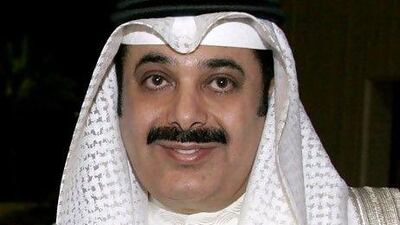This newspaper reported yesterday the Al Gosaibi family had applied to the Cayman Islands courts to lift the freeze on the assets of Maan Al Sanea, their antagonist in the long-running feud between the two Saudi business empires.
On the face of it, that looks very generous on the part of the Al Gosaibis. When the "global freezing order" was sought and won in July 2009, it was regarded as a major victory for the family as it sought to level allegations of fraud, forgery and theft at Mr Al Sanea, which he has firmly denied.
It was the chief weapon the family had against Mr Al Sanea in their global legal battle against him, and tied up big chunks of his capital in Cayman, when he could have used it to good effect in Saudi Arabia. So why lift it now, in a "voluntary" move, as the Al Gosaibi lawyers describe it?
To understand, you have to go back to the London court case brought by four creditor banks against the Al Gosaibis for the repayment of US$250 million (Dh918.2m).
In plainspeak, the Al Gosaibis denied the debts were their responsibility because Mr Al Sanea had taken them out without the knowledge or approval of the family.
Soon before the court case began, however, new documents emerged - from a cupboard in Al Khobar, the family's HQ in Saudi - that convinced the judge there had been at least some knowledge and approval on the part of some Al Gosaibi members. Their defence against the claim was dropped, and liability admitted.
You might, as the Al Gosaibis did, regard this as some kind of "technical" defeat, with no relevance to other parts of their case. But it was a serious blow to their overall strategy, and we are seeing the first repercussions now in the Cayman.
Lawyers working for the Al Sanea companies there have carefully read the transcripts of the London proceedings, and argue the new evidence changes the game completely. In effect, they say if the Cayman court knew back in 2009, when it granted the freezing order, what it knows now from the London case, it would never have frozen the assets in Mr Al Sanea's Cayman companies.
Al Gosaibi lawyers do not accept this, but do admit they would have to seek a renewal of the freeze order to take account of the new evidence. That they would rather lose the asset freeze than go through the process of renewal speaks volumes.
For the Al Gosaibis and their advisers, all sorts of other consequences could follow. Statements submitted in evidence on oath, in support of actions worth billions of dollars, cannot be lightly given, nor lightly withdrawn.
It is increasingly difficult to see how the Al Gosaibis are going to emerge from this mess intact. There are legal and other actions going on in the US, but these are becoming less relevant by the day, compared with what has already happened in London and Cayman, and what must surely happen pretty soon in Saudi Arabia.
The focus of the whole affair is now firmly back in the kingdom. Mr Al Sanea, shrewdly, realised this was going to be the key arena all along, and has settled with most of his Saudi creditors.
The Al Gosaibis have also been in talks with Saudi creditors, and the sense of urgency has increased since the London decision. Now they are getting down to the nitty-gritty of negotiating with Saudi banks over repayment terms and possible asset disposals to cover these repayments.
The first outline of the family's asset value has already emerged in filings made as part of the London proceedings. As if to underline the importance of Saudi Arabia, almost every item on their asset schedule, from "land on which an old house stands" in Al Khobar with a value of 500,000 Saudi riyals (Dh489,704m), to more than 21 million shares in the Saudi bank giant Samba worth more than 1 billion riyals, is marked either "restricted" or "pledged".
"Restricted" means it is covered by the asset freeze imposed by the Saudi government; "pledged" means it has already been marked as repayment on a specific debt. The family now has only a limited say in the fate of its business empire anymore.
To ensure its survival as a functioning business entity, the Al Gosaibi family partnership now has to deal urgently with the Saudi situation. The rest of it - freezing orders, legal actions, international creditors - will have to be put on the back burner.

